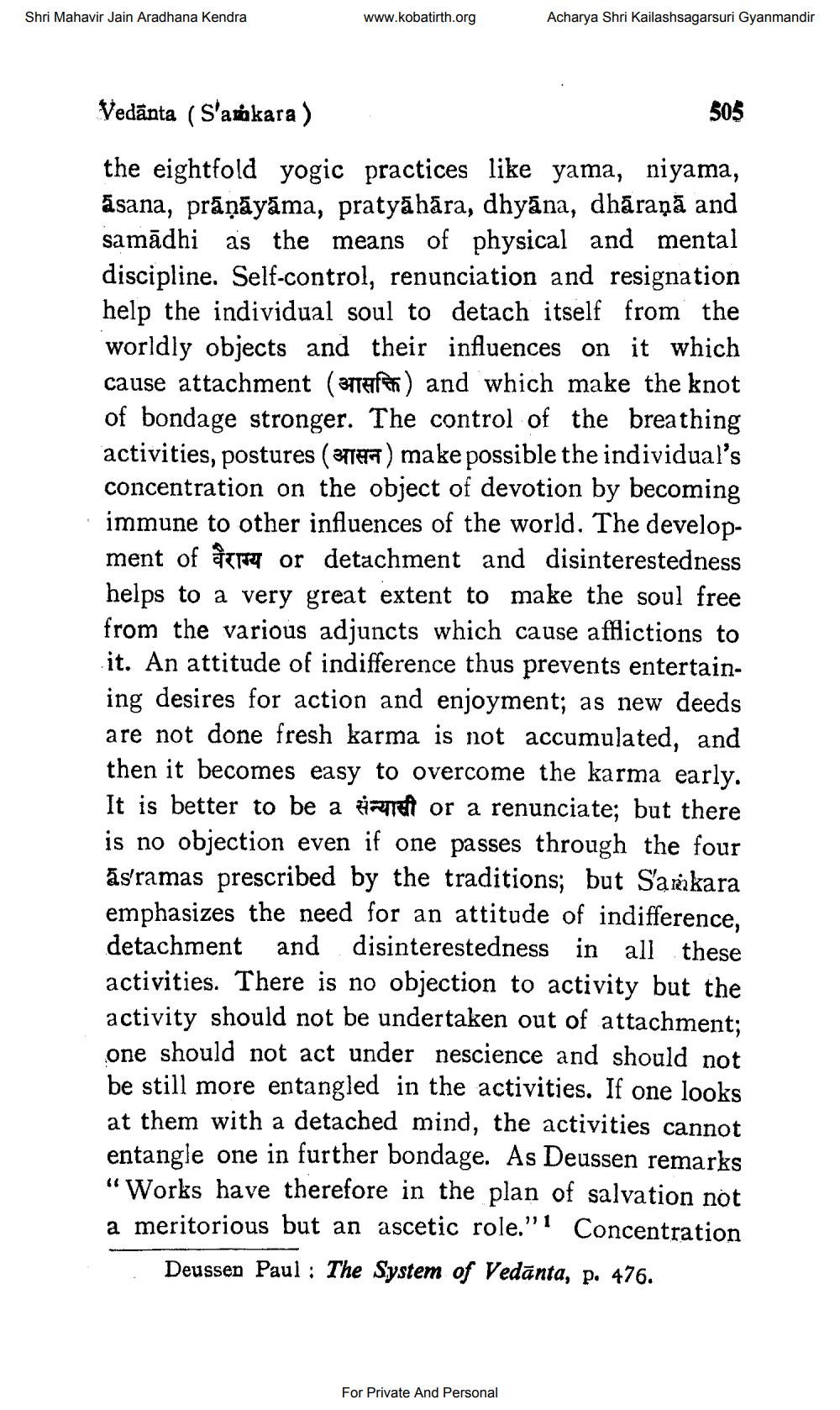________________
Shri Mahavir Jain Aradhana Kendra
www.kobatirth.org
Acharya Shri Kailashsagarsuri Gyanmandir
Vedanta (S'amkara)
the eightfold yogic practices like yama, niyama, āsana, prāṇāyāma, pratyāhāra, dhyāna, dhāraņā and samādhi as the means of physical and mental discipline. Self-control, renunciation and resignation help the individual soul to detach itself from the worldly objects and their influences on it which cause attachment (f) and which make the knot of bondage stronger. The control of the breathing activities, postures () make possible the individual's concentration on the object of devotion by becoming immune to other influences of the world. The development of or detachment and disinterestedness helps to a very great extent to make the soul free from the various adjuncts which cause afflictions to it. An attitude of indifference thus prevents entertaining desires for action and enjoyment; as new deeds are not done fresh karma is not accumulated, and then it becomes easy to overcome the karma early. It is better to be a t or a renunciate; but there is no objection even if one passes through the four as'ramas prescribed by the traditions; but Samkara emphasizes the need for an attitude of indifference, detachment and disinterestedness in all these activities. There is no objection to activity but the activity should not be undertaken out of attachment; one should not act under nescience and should not be still more entangled in the activities. If one looks at them with a detached mind, the activities cannot entangle one in further bondage. As Deussen remarks "Works have therefore in the plan of salvation not a meritorious but an ascetic role."1 Concentration
Deussen Paul: The System of Vedanta, p. 476.
For Private And Personal
505




